
Tehran province is one of the 31 provinces of Iran. Its capital is the city of Tehran.

Kermanshah province is one of the 31 provinces of Iran, bordering Iraq. Its capital is the city of Kermanshah.

Sistan and Baluchestan province is the second largest of the 31 Provinces of Iran, after Kerman Province, with an area of 180,726 km2. Its capital is the city of Zahedan. The province is in the southeast of the country, bordering Afghanistan and Pakistan.

Ali Haghshenas, is an Iranian Writer, Historian, Journalist and sports executive.

Kameel Ahmady is a British-Iranian scholar working in the field of social anthropology, with a particular focus on gender, children, ethnic minorities, and child labour. Kameel Ahmady, born in 1972 in Naghadeh, West Azerbaijan Province, is an Iranian-British researcher and social anthropologist known for his research and activities in the fields of social anthropology and harmful traditional practices. He is the coordinator and developer of more than 11 research study books and 20 scientific articles in Persian, English, Turkish, and Kurdish on subjects such as child marriage, temporary marriage, White marriage, female genital mutilation/cutting (FGM/C), Male circumcision, child labour and children's scavenging, LGBTQ+ issues and identity and ethnicity.
Order of Knowledge is one of the badges of honor in Iran. Its establishment dates back to the Qajar dynasty era under the name of "Order of Science"; later in the Pahlavi dynasty the name was changed to "Order of Knowledge". Finally, it was reestablished in Islamic Republic era by "Council of Iran Ministers" on November 21, 1990.
Order of Research is one of the badges of honor in Iran, established by "Council of Iran Ministers" on November 21, 1990. According to "Article 8" of the "Regulations on the Awarding of Government Orders" of Iran, the "Order of Research" is awarded to individuals who have been the origin of fundamental transformation or rare service in the following ways:
- Introducing new research methods and techniques
- Studies and research that are the source of scientific change
- Finding new research methods
- Transfer of fundamental research to applied fields
- Every important innovation, originality, invention, and discovery
Abdolmohammad Ayati was an Iranian author, translator and researcher in the field of philosophy, history and Persian and Arabic literature. He was born on 5 May 1926 in Borujerd, Borujerd County, Lorestan Province, Iran and died on 11 September 2013 in Tehran, Iran. He was selected at the second Iran's Book of the Year Awards for Arabic to Persian translation of the book History of Arabic Language Literature.
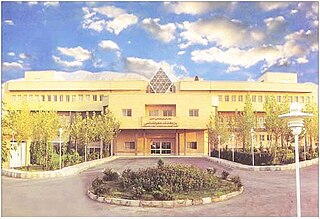
The Iran Atmospheric Science and Meteorological Research Center or in brief ASMERC as a member of the World Meteorological Organization (WMO) is a research center is affiliated with the Iran Meteorological Organization and is a subset of the Ministry of Roads & Urban Development of Iran.
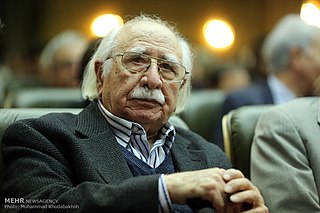
Fathollah Mojtabaei is an Iranian author and historian. He is a permanent member of Academy of Persian Language and Literature and a member of the faculty of the Center for the Great Islamic Encyclopedia.

The Iranian Law and Legal Research Institute, formerly Allameh Legal Encyclopedia Research Center, is a scientific and juridical research institute, composed of four groups: encyclopedia writing, legal theorization and intellectualism, studies on social impact of laws, and studies on "extra" laws. Operating under the license of the Ministry of Science, Research and Technology of Iran, this research institute is one of the first legal entities to be recognized as a knowledge-based company by the Vice-Presidency for Science and Technology of Iran.

Poopak Niktalab is an Iranian education theorist, author, and literary researcher, especially of children's literature.
The De-escalation policy of the Islamic Republic of Iran is a strategy in Iran's foreign policy that began during the second term of Akbar Hashemi Rafsanjani's presidency and with the presidency of Mohammad Khatami since 1997, special attention was paid to this strategy. Hassan Rouhani also mentioned the de-escalation policy as his top priority during his presidency.
Ramak NikTalab is a translator and author of Persian literature from Iran. Her specialty is in children's literature. She is a member of a NikTalab family. Some of her books are between the "A Thousand Years of the Persian Book" Series in the Library of Congress.

The book In the Name of Tradition is the outcome of a comprehensive study on female genital mutilation/cutting (FGM/C) in Iran conducted by Kameel Ahmady, an anthropologist and researcher, and his colleagues. It was published in Farsi by Shirazeh in 2015 and followed by an English version by Uncutvoice publishing house in the same year. The study explores why and how FGM is practised in Iran. The researchers aimed to uncover the various dimensions of FGM between 2005 and 2015 in four provinces: West Azerbaijan, Kurdistan, Kermanshah, and Hormozgan.
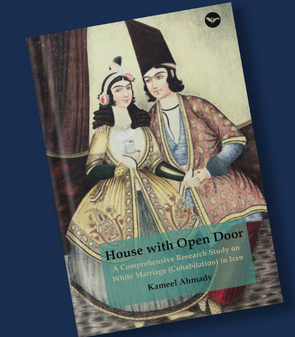
House with Open Door is a book by Kameel Ahmady that examines the social phenomenon of cohabitation, called "white marriage" in Iran, in which couples live together without legally marrying.
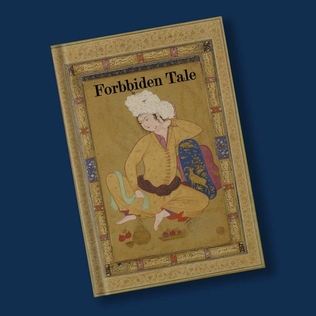
Forbidden tale: A comprehensive study on lesbian, gay and bisexual (LGB) in Iran was written by Kameel Ahmady, a British Iranian social researcher and anthropologist, and published by Mehri Publishing House in 2020 in London. The book is based on Ahmady's research from 2017 to 2018, which aimed to investigate the challenges and attitudes towards the Iranian transgender and homosexual community. The book later become available in Persian, Kurdish, French, Spanish, and English.
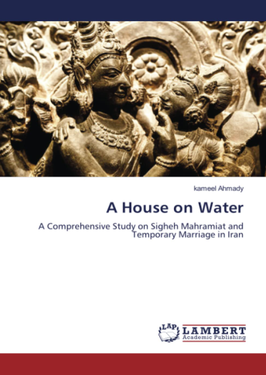
A House on Water is a book that explores the social and psychological impacts of temporary marriage and religious concubinage in Iran, researched and coordinated by Kameel Ahmady, a British-Iranian anthropologist and social researcher. The book is based on a research project that Ahmady and his team conducted between 2017 and 2018 in three major cities of Iran: Tehran, Isfahan, and Mashhad. The book aims to provide a historical overview of temporary marriage in Iran and the world and to examine its prevalence among different social groups and its consequences for those who choose this type of marriage.
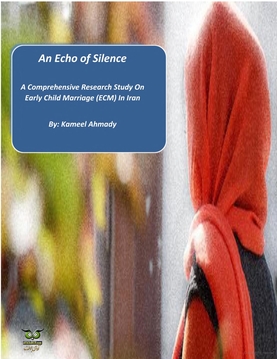
Echo of Silence is a book related to the issue of women's studies in Iran. Kameel Ahmady, a social anthropologist and researcher, supervised a research book titled "Echo of Silence", which is a study about child marriage in Iran. It was published on October 11, 2016, which is also the International Day of the Girl Child. The book is based on research that Ahmady and his colleagues conducted in seven provinces of Iran between 2015 and 2016. They aimed to understand the nature of child marriage in Iran and provide suggestions for social and cultural policymakers. The Persian version of this book was published by Shirazeh Publishing House and unveiled national in library and the English version published in 2017 by Nova publishing in USA.
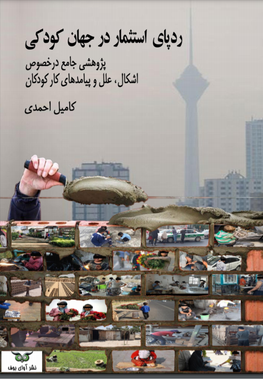
The book Traces of Exploitation in the World of Childhood is a study by Kameel Ahmady, an Iranian-British researcher and anthropologist, and his colleagues, focused on investigating child labour in Iran. The book was published by Avaye Buf in Farsi and Kurdish languages in 2021, coinciding with World Child labour Day on June 12. The publication came after the completion and release of the research project " Childhood Yawn," which Ahmady supervised for the Association for the Protection of Children and Adolescent Rights. The book is part of a series of activities and research that Ahmady and his colleagues have conducted to explore and deeply investigate different forms of children's work and the reasons that lead them to this type of work. The book highlights the causes and reasons behind child labour, which include providing a part of living expenses, learning skills for future employment, and the impracticality of formal education and training in acquiring skills and finding a job in the labour market. It also introduces some of the most significant consequences of child labour, such as the exploitation of children's work, emotional and psychological crises, personality disorders, and damage to the process of socialization.














